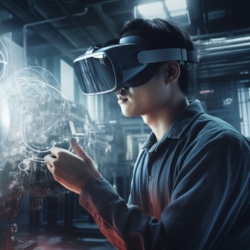January 26, 2024
RIBA issues new guidance on including more people in decision making on buildings and places
 One of the regular, longstanding gripes of our publisher Mark Eltringham (there are many) is that architects don’t particularly like non-architect folk having any sort of opinion on what they do. You can read him banging on here (ten years ago!) and elsewhere about the problems architects have with muggles. Now the Royal Institute of British Architects (RIBA) has pulled a rabbit from the hat by publishing new guidance to ensure that stakeholder engagement is considered, when appropriate, at every stage of planning, designing and constructing buildings and places. It remains to be seen what the rank and file make of this and what it means by ‘when appropriate’. (more…)
One of the regular, longstanding gripes of our publisher Mark Eltringham (there are many) is that architects don’t particularly like non-architect folk having any sort of opinion on what they do. You can read him banging on here (ten years ago!) and elsewhere about the problems architects have with muggles. Now the Royal Institute of British Architects (RIBA) has pulled a rabbit from the hat by publishing new guidance to ensure that stakeholder engagement is considered, when appropriate, at every stage of planning, designing and constructing buildings and places. It remains to be seen what the rank and file make of this and what it means by ‘when appropriate’. (more…)















 With over a third (36 percent) of workers concerned about the impact of technological changes and what this might mean for them, a new report from Virgin Media O2 Business claims that many people believe new tech will offer them a better work-life balance. According to the report, the pandemic accelerated remote and hybrid work, mostly benefitting desk-based workers. Meanwhile, deskless workers like teachers, nurses and engineers saw limited long-term change despite many organisations comprising both types of workers.
With over a third (36 percent) of workers concerned about the impact of technological changes and what this might mean for them, a new report from Virgin Media O2 Business claims that many people believe new tech will offer them a better work-life balance. According to the report, the pandemic accelerated remote and hybrid work, mostly benefitting desk-based workers. Meanwhile, deskless workers like teachers, nurses and engineers saw limited long-term change despite many organisations comprising both types of workers. 




 According to
According to 
 Office workers now spend more time in the office, with the average creeping up to three and a half days per week compared to
Office workers now spend more time in the office, with the average creeping up to three and a half days per week compared to 


 As organizations adopt hybrid work, reduce their real estate footprint and redesign floor plans, space planners are running into a slew of new challenges. Yesterday’s antiquated tools can’t handle these challenges, because they were built for the old, relatively static world of work.
As organizations adopt hybrid work, reduce their real estate footprint and redesign floor plans, space planners are running into a slew of new challenges. Yesterday’s antiquated tools can’t handle these challenges, because they were built for the old, relatively static world of work. 






